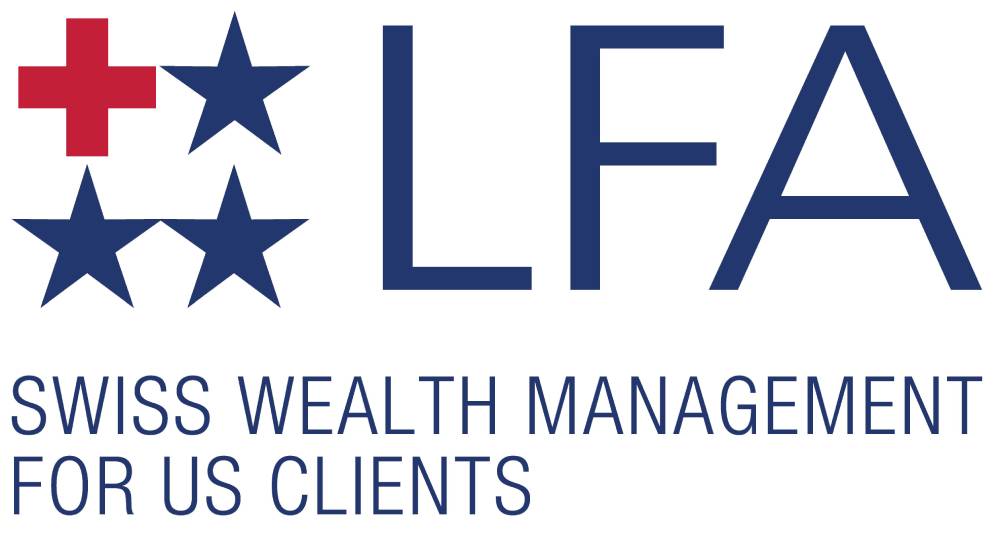The U.S. Federal Reserve is signaling multiple interest rate cuts may be on the horizon. For American investors, this means more than just cheaper borrowing costs; it raises questions about the dollar’s purchasing power and whether it might be time to explore opportunities abroad as part of your overall wealth management strategy.
One country that often stands out as an alternative to dollar-denominated investments is Switzerland and the Swiss Franc. With a strengthening currency, disciplined fiscal policies, and world-class wealth management services, some investors have traditionally considered Switzerland a way to diversify wealth and potentially reduce exposure to certain risks — though this depends on individual circumstances and involves its own risks.
How high can the Swiss franc go amid expectations of Fed rate cuts?
The Swiss franc (CHF) has been steadily appreciating for years, and the trend has accelerated. From July 2015 to July 2025, the franc gained an average of 2.7% annually against a basket of global currencies. Over the last five years, appreciation has risen to 4.1% annually, and in the past twelve months, the franc has surged 7.6%. With the Fed preparing to cut rates, the U.S. dollar faces renewed downward pressure.
Meanwhile, analysts expect that the franc’s strength may continue, potentially normalizing at 4% nominal annual appreciation. As an American investor, this could mean holding Swiss assets might serve as a long-term hedge against a weakening dollar.
Instead of watching savings erode, based on purchasing power, you may benefit from the franc’s upward trajectory.
Why is the Swiss franc strengthening against the USD as the Fed prepares for multiple rate cuts?
The answer lies in fundamental differences between the U.S. and Swiss economies. The Swiss National Bank (SNB) has stepped back from interventions that previously slowed the Swiss franc’s appreciation, allowing the currency to strengthen more naturally.
Inflation in Switzerland remains significantly lower than in the U.S., which has contributed to stronger investor confidence in the franc’s real value. While U.S. public debt may approach nearly $37 trillion, it still requires almost $1 trillion yearly in debt servicing. Meanwhile, Switzerland has generally maintained balanced budgets and fiscal discipline.
When global markets face uncertainty, investors often turn to the Swiss franc, commonly perceived as a reliable store of value.
By contrast, the Fed’s decision to cut rates, even with inflation still above its 2% target, highlights the central bank’s mandate of price stability, employment growth, and an expanding economy. This move could potentially weaken the dollar further, increasing the perceived appeal of investing in Switzerland as a U.S.-based investor.
Why are forex traders betting on the Swiss franc responding to potential Fed rate cuts?
Foreign exchange markets thrive on anticipating global currency shifts and exchange rates. In recent times, currency traders have increasingly been positioning themselves in favor of the Swiss franc.
Here’s why:
- Lower interest rates shrink the dollar’s yield advantage, reducing its attractiveness.
- Switzerland’s low inflation and strong fiscal management have supported the franc’s long-term stability.
- U.S. tariffs and rising debt levels may encourage some traders to consider safer currencies like the CHF.
For traders, the franc is more than just a defensive play; it’s also generally viewed as an opportunity to capture gains as the dollar declines. As a long-term investor, this shift in sentiment could strengthen the case for adding Swiss franc investments to your portfolio.
What this means for you
The big question isn’t just about forex trades, it’s about how to diversify your wealth strategically. With rate cuts likely, the purchasing power of a dollar may continue to face pressure. That’s where Switzerland’s advantages come into play:
- Swiss wealth management firms are known for their disciplined approach and can offer solutions tailored to international investors.
- With proper structuring, Swiss bank accounts for U.S. citizens can provide access to global markets while complying with U.S. regulations like FATCA.
- Beyond blue-chip names like Novartis and UBS, small and mid-cap Swiss companies provide exposure to additional growth opportunities that may be accessible through ETFs.
Why Consider LFA
Navigating the complexities of cross-border investing can be challenging without the proper guidance. That’s where LFA stands apart.
LFA is uniquely positioned as a dually registered firm in the United States and Switzerland. This dual registration offers American investors something rare: seamless access to Swiss wealth management services while fully compliant with U.S. regulations that include FATCA and SEC oversight.
Instead of juggling separate advisors across multiple borders, clients gain one integrated team that understands U.S., Swiss, and global investment requirements.
The benefits extend beyond compliance. U.S. clients working with LFA can open Swiss bank accounts for U.S. citizens, access specialized investment opportunities including Swiss small- and mid-cap equities, and seek to protect purchasing power through exposure to the strong Swiss franc. At the same time, they receive tax-efficient strategies tailored to the unique challenges of Americans investing abroad.
In short, LFA allows clients to diversify wealth globally without the confusion or risks of going it alone. Clients gain trusted expertise on both sides of the Atlantic, and strategies are designed to support long-term success.
Ready to learn more about investing in Swiss francs? Connect with us.


